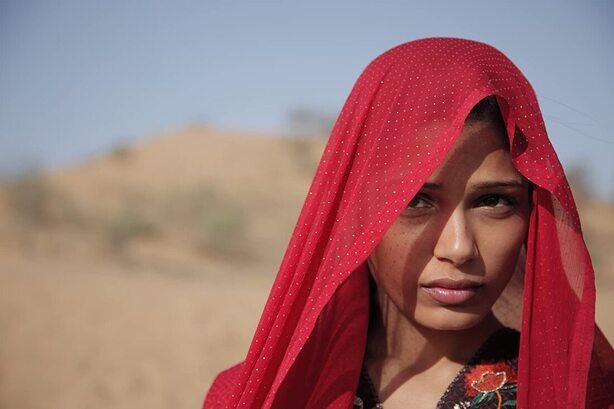TRISHNA
***
Director: Michael Winterbottom
Screenwriter: Michael Winterbottom adapted from the novel Tess of the d’Urbervilles by Thomas Hardy
Principal cast:
Frieda Pinto
Riz Ahmed
Mita Vasisht
Harish Khanna
Roshan Seth
Leela Madhavram
Country: UK
Classification: MA15+
Runtime: 117 mins.
Australian release date: 10 May 2012
Michael Winterbottom’s, Trishna, the retelling of Thomas Hardy’s classic novel, Tess of the d’Urbervilles, is set in modern-day India, where the growing income gap between the rural poor and the burgeoning urban middle classes is rapidly altering the fabric of traditional society. The central theme of the film is the complexity of love and how the subjugation of women exists to this day, regardless of how educated people are and where in the world they live. In Winterbottom’s version, Tess (the eponymous Trishna, played by the very watchable Freida Pinto) is caught in the middle of the old rural world of her parents and the new urban one inhabited by her lover. In fact, according to Winterbottom, Trishna is a victim of “…how society is organized.”
The setting is rural Rajasthan where we first meet the young woman, as seen through the eyes of wealthy young British Indian Jay (Riz Ahmed). Jay has returned to India to oversee his father’s hotel business; he is mesmerized by Trishna and offers her a job at his hotel. Trishna accepts because it will provide a means of support for her family; her father (a transporter of local people and their produce) has been injured in a recent car accident and is unable to work. Inevitably, romance develops between the two young people and, after some initial angst, they end up living in Mumbai in a thoroughly modern relationship that goes against traditional social mores, but is acceptable in the go-ahead city. Life for the couple seems idyllic until a drastic event, coupled with the revealing of a secret, changes their lives forever. Their different cultures collide dramatically and the downward spiral of their relationship begins to accelerate.
The two leading actors give fine performances and credit must also be given to Roshan Seth (remember his wonderful performance in My Beautiful Launderette), who plays Jay’s blind father. He prefers to run his hotel chain from abroad and is hoping his son will take over the reins, but he is world-weary enough to acknowledge that he can’t force Jay to live on the sub-continent. Set against the hustle and bustle of India, both in Rajasthan and Mumbai, the story on-screen is quite an eye-opener in more ways than one; it does not visually sanitize the locations as some recent films have done. These locations are shown to great effect by Marcel Zyskind’s camerawork.
Winterbottom is known for his tough films that require patience and Trishna is no exception. It’s not the first time he’s gone to Hardy for his source material either and, in this adaptation, he’s played with the original - there is no Angel Clare character, for example; rather, the Alec d’Urberville role is a composite of the two suitors in Hardy’s story. Also, there are repetitive scenes which could have been left on the cutting-room floor, but Winterbottom leaves them here to add to the tension as the story unfolds, both in the building of the doomed affair and in its unravelling. Trishna is not the best of the prolific director’s offerings but, nevertheless, even a lesser Winterbottom film is better than most. And the splendid visual imagery makes up for a hell of a lot, too.
